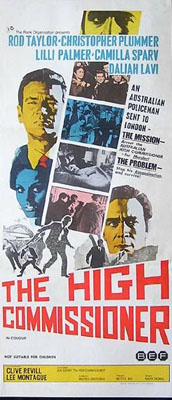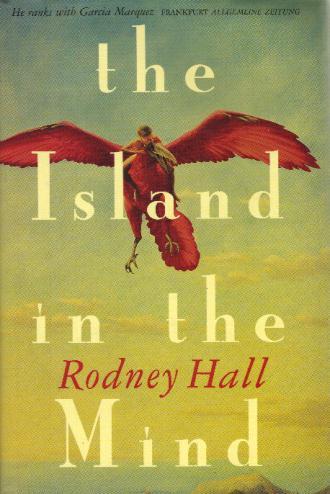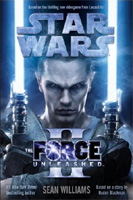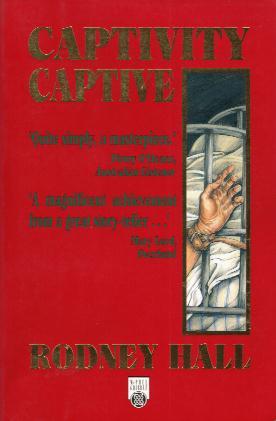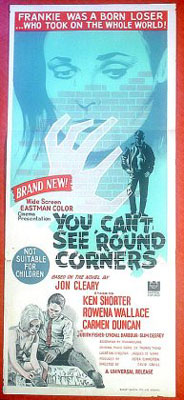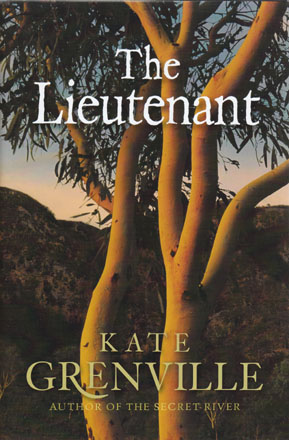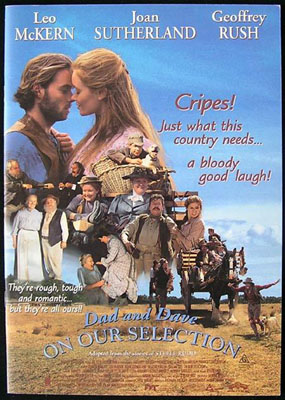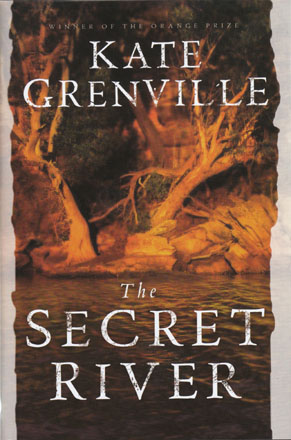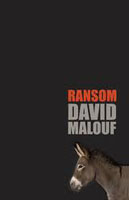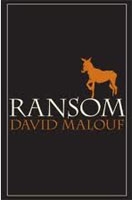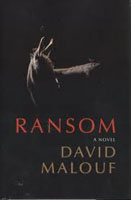Thirty years ago literary
circles in Australia were astounded by
the publication of an extraordinary book,
written by a girl of sixteen, Stella
Miles Franklin. The title of the book was
audacious -- "My Brilliant Career."
The "brilliant career" of a girl of
sixteen might have meant any thing -- a reading of the book itself shows that it meant a great deal. The story is in the form, partly, of fiction, and partly of autobiography, and it bears on every page the imprint of sheer genius. It throbs with a passionate love of the Australian bush, and particularly of horses, and with an equal passionate hatred of the cruelties of life endured by the people on the land, particularly by the women. It is the first statement, and to this day it remains the greatest statement, of the case for Australian bush womanhood.
In a preface to the book Henry Lawson said:-- "The description of bush life and scenery came startlingly, painfully real to me; and I know that, as far as they are concerned, the book is true to Australia -- the truest I ever read. She has lived her book, and I feel proud of it for the sake of the country I came from, where people toil and bake and suffer, and are kind."
The youthful author herself says in her introduction: -- "This is not a romance. I have too often faced the music of life to the tune of hardship to waste time in snivelling and gushing over fancies and dreams. .... Do not fear encountering such trash as descriptions of beautiful sunsets and whisperings of wind. We (999 out of every 1,000) can see naught in sunsets save as signs and tokens whether we may expect rain on the morrow. There is no plot in the story, because
there has been none in my life, or
in any other life which has come
under my notice."
But the last chapter
swells to a magnificent paean of
youth's brave challenge to the world: -- "I am proud that I am an Australian, a daughter of the Southern Cross, a child of the mighty bush. I am thankful I am a peasant, a part of the bone and muscle of my nation, and earn my bread by the sweat of my brow, as man was meant to do.
"Ah! my sunburnt brothers -- sons of toils and of Australia -- I love and respect you well, for you are brave and good and true. I have seen not only those of you with youth and hope strong in your veins, but those with pathetic streaks of grey in your hair, large families to
support, and with half a century sitting
upon your work-laden shoulders. I
have seen you struggle uncomplainingly
against flood, fire, disease
in stock, pests, drought, trade depression, and sickness, and yet have time to extend your hands and hearts in true sympathy to a brother, in misfortune, and spirits to laugh and joke and be cheerful.
''And for my sisters a great love and pity fills my heart. Daughters of toil, who scrub and wash and mend and cook, who are dressmakers, paperhangers, milk-maids, gardeners, and candle-makers all in one, and yet have time to be cheerful and tasty in your homes, and make the best of the few cases to be found along
the dusty track of your existence.
Would that I were more worthy to
be one of you --- more a typical
Australian peasant -- cheerful, honest,
brave!
"I love you. I love
you. Bravely you jog along with the
rope of class distinction drawing closer, closer, tighter, tighter around you. A few more generations, and you will be enslaved as were ever the moujiks of Russia. I see it, and know it, but I cannot help you. My ineffective life will be trod out in the same ground of toil. I am only one of yourselves, I am only an unnecessary, little bush commoner. I am only a -- woman!
"The great, sun is sinking in the west, grinning, and winking knowingly as he goes, upon the starving stock and drought smitten wastes of land. Nearer he draws to the gum-tree, scrubby horizon, turns the clouds to orange, scarlet, silver, flame, gold! Down, down he goes. The gorgeous, garnish splendour of sunset pageantry flames out; the long shadows eagerly cover all; the kookaburras laugh their merry mocking good-night; the clouds fade to turquoise, green, and grey; the stars peep shyly out; the soft call of the moke-poke arises in the gullies! With much love and good wishes to all -- Good-night! Goodbye! Amen!"
The MS. of "My Brilliant Career" was taken to England by Earl Beauchamp, then Governor of New South Wales, and it was published by Blackwood, of Edinburgh. Like many another fine Australian book it has been allowed to go out of print, and copies are now quite unobtainable. Perhaps it will be re-issued by one of our Australian publishing
houses soon. Meanwhile, what happened
to Miles Franklin? She went
abroad, and has been lost to
Australia for more than twenty years. She threw herself into organising work for the Feminist Movement in the United States of America, wrote thousands of newspaper and magazine articles, and made speeches in every State of the Union. When the war broke out she went to Salonika with the Scottish Women's Hospital. After the war she had a most responsible position as secretary of the housing committee in London. In all these years of great organising achievement she was definitely lost to Australian life and letters.
Now she has returned to her native land. A year ago a book appeared, "Old Blastus of Bandicoot," under her name. The book is modestly described as an ''opuscule," but all the old fire and dash is there. John Dalley, in the Sydney "Bulletin," sums up what many other critics have said about this book: "The characterisation's the thing. Nothing so good has been done in any previous novel about the Australian bush."
This year the Endeavour Press will print and publish in Australia a sprightly detective story by Miles Franklin, entitled "Bring the Monkey!"-- modestly described as a "light novel." Is that, then, the whole story of Miles Franklin? We shall see. Is it likely, or possible, that a writer of such power and sheer genius as the author of "My Brilliant Career" should have been silent for more than twenty years?
Miles Franklin will not admit it, but whether she likes it or not people are identifying her with the mysterious "Brent of Bin Bin," whose books (published by Blackwood, of Edinburgh, be it noted) are acknowledegd to be the finest presentation in fiction of the Australian outback epic which have yet been written. "Brent of Bin Bin" loves the bush and understands horses, and hates injustice to bush women, as only the author of "My Brilliant Career" and "Old Blastus of Bandicoot" could love, and understand, and hate.
The "Brent of Bin Bin" triology ("Up the Country," "Ten Creeks Run," "Back to Bool Bool") are already Australian classics. Despite the fact that they are difficult to obtain, as are most Australian books published overseas, they have gone into numerous editions, and are hailed by a multitude of discerning readers as being absolute portents for the future of the Australian novel -- a real and true portrait, not a caricature, of outback life.
If Miles Franklin is also "Brent of Bin Bin," then she is the greatest Australian bush novelist alive. And if she is only Miles Franklin of "My Brilliant Career" and "Old Blastus of Bandicoot" she takes second place to one writer alone -- the tremendously gifted and mysterious
author who writes in Miles Franklin's
manner under the pseudonym of
"Brent."
First published in The West Australian, 22 April 1933
[Thanks to the National Library of
Australia's newspaper digitisation project for this piece.]
